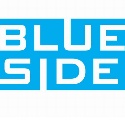Microsoft ups the ante on homebrew
 Tracing the history of the computing mogul, Microsoft‘s meteoric rise through more than two decades can be credited in fair part to the company’s support of the developers, whether they be first or third party. Deja vu- when Microsoft saw Evo X and other mods for the Xbox, it’s not quite surprising how their eyes glistened at the prospect of turning the situation to their advantage.
Tracing the history of the computing mogul, Microsoft‘s meteoric rise through more than two decades can be credited in fair part to the company’s support of the developers, whether they be first or third party. Deja vu- when Microsoft saw Evo X and other mods for the Xbox, it’s not quite surprising how their eyes glistened at the prospect of turning the situation to their advantage.
Fast forward to today, as the console war heats up and the proverbial jockeying for position gets underway, it is apparent that old Bill is employing some old tactics in order to harness an aspect of the trade that its competitors are more cautious to plunge into – legitimizing modded consoles.
In August of last year, Microsoft rocked the playing field with the announcement of free development tool XNA Game Studio Express and the subscription-based XNA Creators Club. Both were released in December, but there was one hitch: no web browser unlike the PlayStation 3 and the Wii. The bad news is that there probably won’t be one until Microsoft feels a strong need to have it.
The good news is that Microsoft is apparently the most committed player in the three-way war when it comes to homebrew support as evidenced by its continued building of tools and growing infrastructure to aid independent developers.
The full article awaits after the jump!
 Tracing the history of the computing mogul, Microsoft‘s meteoric rise through more than two decades can be credited in fair part to the company’s support of the developers, whether they be first or third party. Deja vu- when Microsoft saw Evo X and other mods for the Xbox, it’s not quite surprising how their eyes glistened at the prospect of turning the situation to their advantage.
Tracing the history of the computing mogul, Microsoft‘s meteoric rise through more than two decades can be credited in fair part to the company’s support of the developers, whether they be first or third party. Deja vu- when Microsoft saw Evo X and other mods for the Xbox, it’s not quite surprising how their eyes glistened at the prospect of turning the situation to their advantage.
Fast forward to today, as the console war heats up and the proverbial jockeying for position gets underway, it is apparent that old Bill is employing some old tactics in order to harness an aspect of the trade that its competitors are more cautious to plunge into – legitimizing modded consoles.
In August of last year, Microsoft rocked the playing field with the announcement of free development tool XNA Game Studio Express and the subscription-based XNA Creators Club. Both were released in December, but there was one hitch: no web browser unlike the PlayStation 3 and the Wii. The bad news is that there probably won’t be one until Microsoft feels a strong need to have it.
The good news is that Microsoft is apparently the most committed player in the three-way war when it comes to homebrew support as evidenced by its continued building of tools and growing infrastructure to aid independent developers.
Given that the company has made some forward steps for the game community at large to proliferate homebrew, it may also want to reconsider some of its policies regarding the matter. The biggest burden right now is the fact that there’s a hefty subscription fee charged to be able to access the legitimate environment where homebrew can be forged. Other technical issues exist, but the groundwork is looking rock-solid.
A few emulators and development tools aside, the independent community still hasn’t hit pay dirt in terms of striking achievements. What Microsoft needs to realize is the fact that it’s on to something big here. there’s a huge potential market which includes amateur developers, homebrew fans and in a wider sense, Microsoft itself.
What it needs to do now is find a way to keep the Xbox Live network secure, and at the same time, loosen up on some fees, which are essentially negligible right now as the independent market, or at least the part of it which is willing to pay, is relatively small and won’t generate big profits anyway.
The sense of caution is understandable on the part of Microsoft. Risking network security is a bold step. but if it can come to grips with giving homebrew a room to grow and at the same time sustaining a safe environment, the indie world may just be theirs for the taking.
Also, there’s an outcry to the Xbox 3D sound capabilities being inaccessible at this point, which is absurd for most members of the independent community for the reason that it restrains the creative value of their work. Imagine coming up with a technical masterpiece with flat audio and you’ll get the picture.
At the end of the day, the X360 homebrew paradigm is viable, but the constraints need to be lifted and improvements must be made in terms of tools for the model to really fly. It’s a good start, and we do hope progress can be made in the near future.
Via spouting-tech

